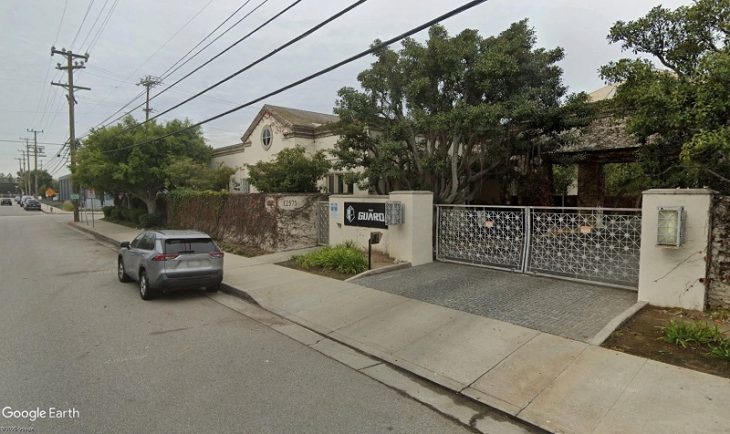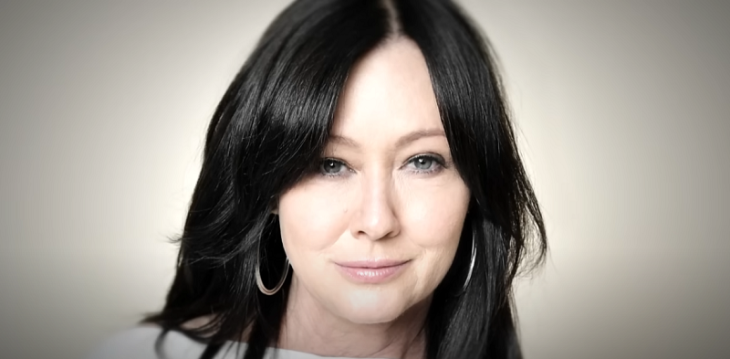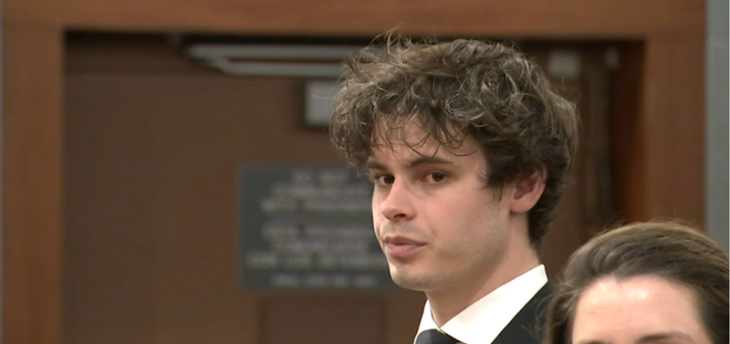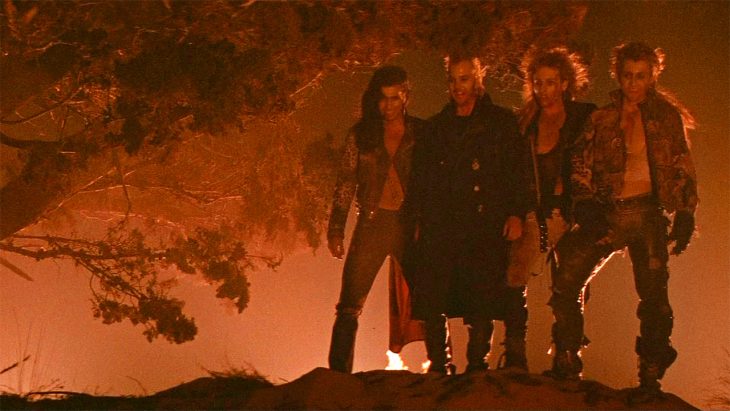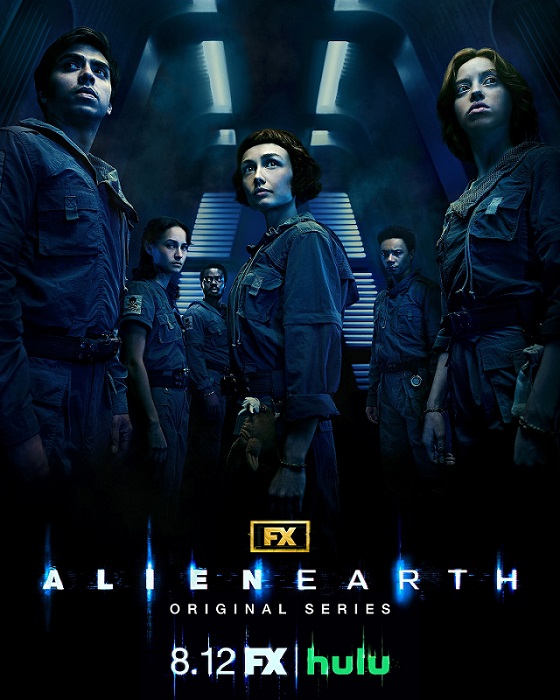Tilman Singer’s Cuckoo is a deftly constructed and ingenious film that weaves a young woman’s secrets with the distinct possibility of a terrifying creature with a piercing and paralyzing scream in the Bavarian Alps. It is an inventive gift to cinema and audiences and pulses with a frenzy of female rage.
The film reminded me of those paranoid ’70s thrillers about conspiracies. It’s not just the plot and the machinations of certain characters but the set design, hairstyles, and costuming of all of the women but one. Once the family arrives at Alpschatten, it’s like they stepped back in time to a place where many strange things are possible. There’s a feeling that there’s always something unspoken, and paranoia that creeps up on the characters as the film progresses.
Cuckoo has a rich sound design that works to great advantage on your brain. The call of the “monster” affects the audience, much like it does the characters in the film. The “monster’s” attack is visceral, and Tilman Singer has constructed a fiendishly clever way to make the attacks land squarely in the minds of the audience. The camera shakes and boils with a presence, and the viewer is thrown into a time loop that is at once disturbing and filled with panic.
I will admit that a time loop is actually a very fearful experience for me. The terror of a repeated time loop, which I have felt, is the feeling that events are completely out of your control and seeing reality split into a single scene that repeats itself over and over again. The worst moment is when you can’t tell if this moment that you are currently encased in will ever end. You are trapped with your own perception of reality that has somehow stopped in one brief period of time.
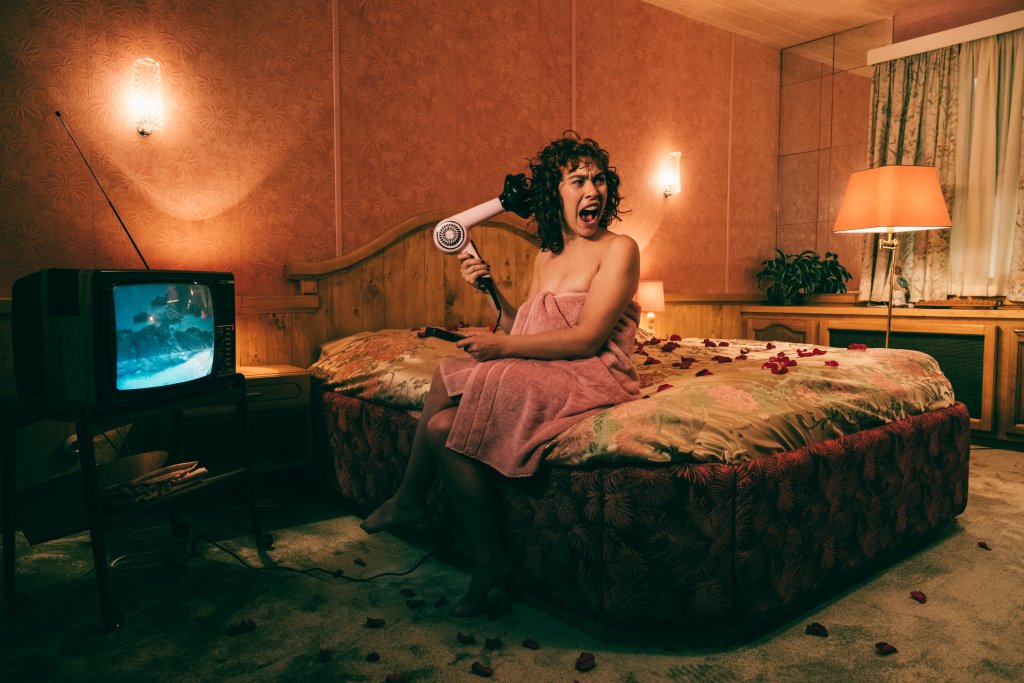
That’s the terror of Cuckoo.
Hunter Schafer’s tender but tough Gretchen has a swelling ache at her core but thinks nothing of whipping out her switchblade to deal with whatever comes at her. The basic concept of her character, the teenage rebel being oppressed by uncaring family members, is made real and deepened by Schafer’s commitment to showing the character’s deep sorrow and confusion at her father’s rejection while dealing with the loss of her life and her mother.
The actress gives a multi-layered performance that shows all of Gretchen’s sides: the sullen, silent, seemingly uncaring teen and the caring person hiding internally from her new family. Her look, asymmetrical haircut, and current-day musician’s clothes separate her from her family and Herr König’s employees. The wry humor of the film leans into the characterization of Gretchen and melds together. As Gretchen suffers more emotional wounds, she gets corresponding physical wounds. She is injured again and again in a way that recalls certain action films. Her mostly deadpan delivery is an amusing counterpoint to the fantasy world the other characters are willingly participating in.
I love that I am compelled to say yet again that the film is cast perfectly. Dan Stevens, as Herr König, is charming and unintentionally funny but the opposite of Gretchen. He is also hiding but is less sympathetic than he outwardly appears. Stevens adds another portrait to his savage collection of men enraptured by their own hubris and in love with their own cleverness. His König oozes a compelling air of comedic menace at all times. I thought it very interesting that during the Q&A with director Tilman Singer at The Vista Theater, he told the audience that König was originally supposed to be played by John Malkovich and that Stevens wasn’t cast until late in the process.
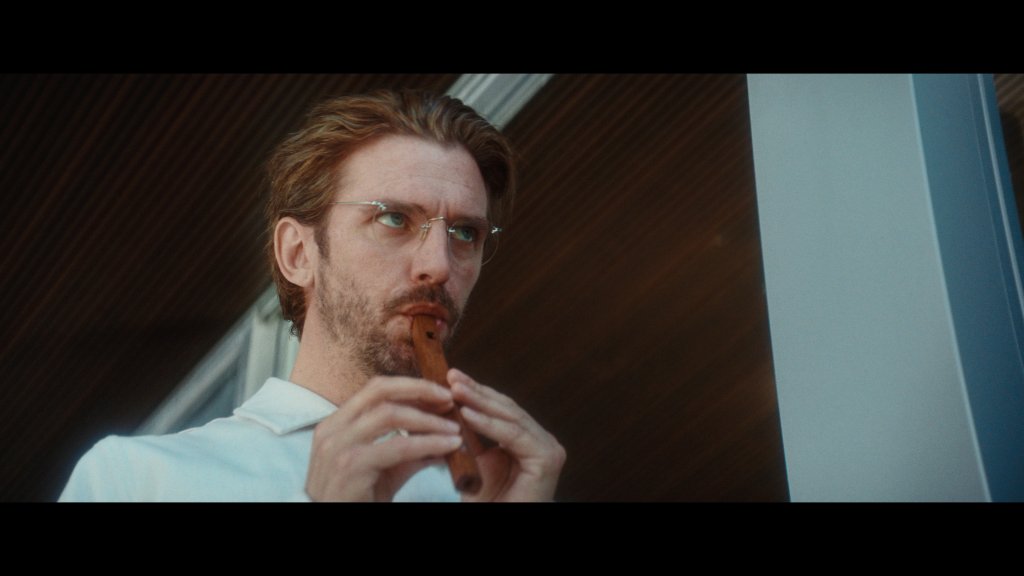
Jessica Henwick (Beth) and Greta Fernandez (Trixie) play two characters that could easily have been less interesting in other actors’ hands. They play the wife and the other worker at Alpschatten with luxurious beauty and sensuality that most actors don’t even approach. They are glamorous and seem like they stepped out of a 70s film. Marton Csokas has similar qualities in his performance as a father who is focused on his new family more than his eldest child. Not entirely unsympathetic, but more selfish. His performance leaves you wondering whose side he is on.
Mila Lieu, as the new family’s child Alma, is somewhere in between the two groups, but she has her own strength when needed. Àstrid Bergès-Frisbey, as Ed, is a strong presence who knows what she wants. She represents the freedom that Gretchen longs for and is an older version of what Gretchen may become. Kalin Morrow, as the Hooded woman, is mysterious, again glamorous, but not entirely unsympathetic. Jan Bluthardt, as Henry, is the opposite of Herr König, much more open and caring but hiding secrets of his own.
The core of the film seems to be the differences between men and women. While both Gretchen and Herr König are ruthless, Gretchen has an empathy for others and a willingness to trust that König doesn’t. When misunderstandings happen between women and girls, they can react with anger but, given some time, seem much more willing to give others a second chance. Henry seems sympathetic as well but becomes obsessed with destroying the “monster” and willing to harm others without considering who they are. Men are obsessed with control but it is the cooperation between the women who are open to believing in others as much as they believe in themselves that leads them back into the light. Sisterhood is very important to survival.
Cuckoo is a richly frightening fable of visceral, time-twisting terror nestled in certain dreadful aspects of reproduction and the avarice of people who think they can control nature and control others without controlling themselves.




